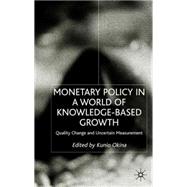
|
viii | ||||
|
x | ||||
| Preface | xiii | ||||
|
xiv | ||||
|
xix | ||||
|
xxi | ||||
| PART I KEYNOTE SPEECHES | |||||
|
3 | (23) | |||
|
|||||
|
26 | (13) | |||
|
|||||
| PART II AN OVERVIEW AND CASE STUDY OF THE DEVELOPMENT OF A KNOWLEDGE-BASED ECONOMY | |||||
|
39 | (46) | |||
|
|||||
|
73 | (12) | |||
|
85 | (18) | |||
|
|||||
|
100 | (3) | |||
|
103 | (22) | |||
|
|||||
|
|||||
|
|||||
|
119 | (6) | |||
| PART III THE PRODUCTIVITY PARADOX AND MISMEASUREMENT PROBLEMS | |||||
|
125 | (50) | |||
|
|||||
|
|||||
|
170 | (3) | |||
|
173 | (2) | |||
|
175 | (30) | |||
|
|||||
|
|||||
|
198 | (7) | |||
| PART IV IMPLICATIONS OF A KNOWLEDGE-BASED ECONOMY ON ECONOMIC GROWTH AND THE LABOUR MARKET | |||||
|
205 | (47) | |||
|
|||||
|
|||||
|
247 | (5) | |||
|
252 | (24) | |||
|
|||||
|
270 | (3) | |||
|
273 | (3) | |||
|
276 | (39) | |||
|
|||||
|
305 | (10) | |||
| PART V MONETARY POLICY UNDER THE IRREVERSIBLE TREND OF A KNOWLEDGE-BASED ECONOMY | |||||
|
315 | (32) | |||
|
|||||
|
347 | (44) | |||
|
|||||
|
369 | (7) | |||
|
376 | (9) | |||
|
385 | (6) | |||
| PART VI CONCLUDING COMMENTS | |||||
|
391 | (8) | |||
|
|||||
| PART VII BACKGROUND PAPER | |||||
|
399 | (36) | |||
|
|||||
| Index | 435 |
The New copy of this book will include any supplemental materials advertised. Please check the title of the book to determine if it should include any access cards, study guides, lab manuals, CDs, etc.
The Used, Rental and eBook copies of this book are not guaranteed to include any supplemental materials. Typically, only the book itself is included. This is true even if the title states it includes any access cards, study guides, lab manuals, CDs, etc.